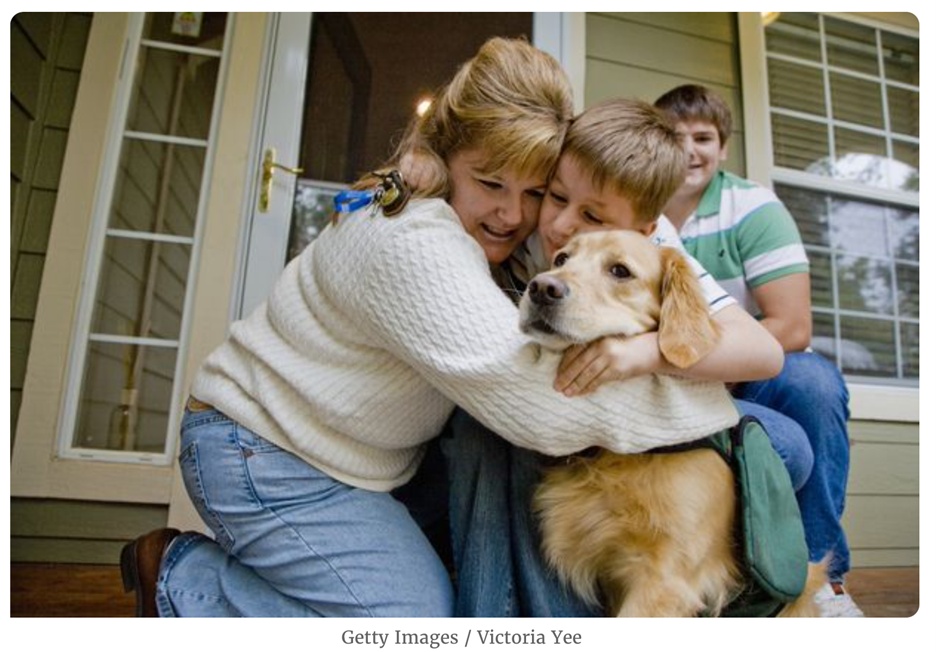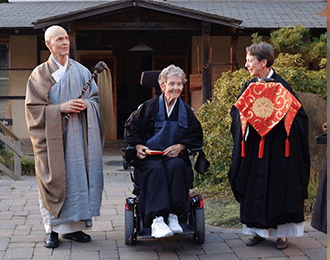Caring for Adults with ASD

By Lisa Jo Rudy for Very Well Heath Updated on April 15, 2020, Updated February 8, 2021
Whether they are “high functioning” or severely disabled, adults with autism need at least some level of support. For very severely disabled individuals, there is usually “residential” funding available for group homes or other settings. For moderately to mildly disabled adults, however, funding is a little trickier. The reality is that most young adults with autism (80%) wind up living with their parents after high school.
This begs the question: “what will happen to my adult child with autism when we die?”
The prevalence of adults with autism is on the rise and the reason is really quite simple: more children diagnosed with autism means, in the long run, more adults with autism. School programs are comprehensive and available to all, but adult programs are sketchier and may involve long waitlists, particularly for families in which the adult with autism has no aggressive behaviors and is capable of handling daily care and job routines.
As the parent of an adult with autism, therefore, you’ll want to be proactive about the “what happens” question and start preparing early. Here are some key steps you can take to ensure that your child is supported and cared for even when you’re gone.
Making the Most of Funded Services and Opportunities
Even if your child doesn’t qualify for residential funding in your state, you can make the most of the services that are funded to set the stage for your child to live a more independent life. Here are a few possible ways to do that:
Be sure your child is employed in a permanent position and receives appropriate job coaching. Even if your child is making minimum wage and working only a few hours a week, a regular job is hugely important to his or her well-being, self-esteem, and position in the community. In some cases, a job can become a real career, community, and support network.
Be sure your child is volunteering in the community. Most adult support programs will help your child find and succeed in volunteer settings, and this is a great way to help your child connect with others, build skills, and increase self-confidence.
Make the most of training, educational opportunities, 1:1 support, and any other offerings provided by local adult services. These opportunities range from work-skill programs to adaptive life skills, travel training, money management, and more. Learning doesn’t stop when school ends.
Say “yes” to social opportunities. In many cases, adults with autism connect socially to other adults with disabilities. This can happen through programs such as Challenger League, Special Olympics, Easter Seals, or other organizations that are either available through state funding or scholarships and grants.
Ask for and make the most of any independent living supports available to your child. Often, aides will work with your child to help him or her manage daily living in the home. They can work on cooking, clothes washing, time management, and other important skills.
Be sure your child is signed up for SSDI (Social Security for Disabled Adults) which comes with funding for basic health care. This can be extremely valuable if your child is covered under your health care until you pass away.
Making the Most of Community Supports
In addition to maxing-out funded options, it’s extremely important for parents to help their adult children become real members of the local community. All too often, families with autistic members live in relative isolation, struggling to maintain a predictable and uneventful life for the benefit of their autistic child. Adults with autism may not participate in family or personal activities with friends or family (outside of siblings, both living far away). In essence, these families are on their own. Here are just a few ways to help your child make connections that can last a lifetime:
Visit the library on a regular basis and be sure the librarian knows your child’s name. Teach your child how to find and check out the books and videos he prefers.
Join the YMCA. The YMCA is an outstanding resource for children and adults with disabilities and is usually willing to make small accommodations in programs that could otherwise be challenging.
Build on your child’s strengths. If your adult child can sing, play an instrument, use a hammer, clear a trail, serve meals, help with a community event, run a race, or otherwise participate in a typical community activity, make it happen early and often. It will take work at first, but over time your child will be valued for his or her skills and included to the degree possible.
Consider joining a religious community. Churches, synagogues, mosques, and other religious organizations pride themselves on inclusion. Many families rely on their religious communities when times get tough, and what could be tougher for your child than losing his parents?
Think about living in a town or city rather than a suburb. A single adult with autism is unlikely to fit well into a suburban community. On the other hand, a single adult with autism may find friends or at least a community in a city or town where it’s possible to get around without a car, see the same people on a regular basis, and connect with others around interests and hobbies.
Become aware of supports and programs in your town. Most municipalities offer a range of services and support to people with disabilities or with little money. Possibilities range from low-cost transportation to meal services to volunteers willing to help with inclusion in arts programs, sports, or other activities.
When Siblings or Others Take Over for You
In some cases, grown siblings or other friends or relatives are willing and able to become caregivers for their siblings with autism. This is, of course, a major commitment, and can also be an expensive commitment: few people on the autism spectrum are fully employed, and many have medical or mental health needs that can be costly.
If everyone agrees, in principle, to the idea of a particular individual taking over care when parents are gone, it’s important to think through the logistics ahead of time rather than making assumptions without communicating them. A few things to consider together include:
Money. Where will the funds come from to care for an adult with autism? Parents can put aside money, take out life insurance, or otherwise ensure that a significant amount of liquid cash is available for their autistic child’s needs. Be sure the money is properly set up, ideally in a special needs trust account. If you go that route, be sure the caregiver is legally named as a trustee.
Location. If an autistic adult lives with his or her parents, there’s a good chance their sibling will live elsewhere. Will the adult with autism move to be with or near their sibling—or vice versa? What kinds of housing options are available?
Services. Adult services are largely funded by the state in which an adult with autism resides. Funding for adult services varies widely from state to state. It’s worth considering what level of funding and services are available in different locations.
Stability. Most people with autism have a tough time with change, and, by the time their parents have gone, they may have been in a job, adult care program, and home for many years. Is it a good idea to make a move?
The desires of the adult on the spectrum. While some adults with autism will find it difficult to think through possibilities for the future, many will be able to do so intelligently and thoughtfully. Either way, it’s critically important to include your adult child with autism in any planning for their long-term welfare.
In addition to having ongoing and open conversations about the future, it’s also important for parents to keep careful records about their autistic child’s service providers, funding, evaluations, and medical needs. If a sibling needs to take over in a hurry, all the information they need should be at their fingertips.





